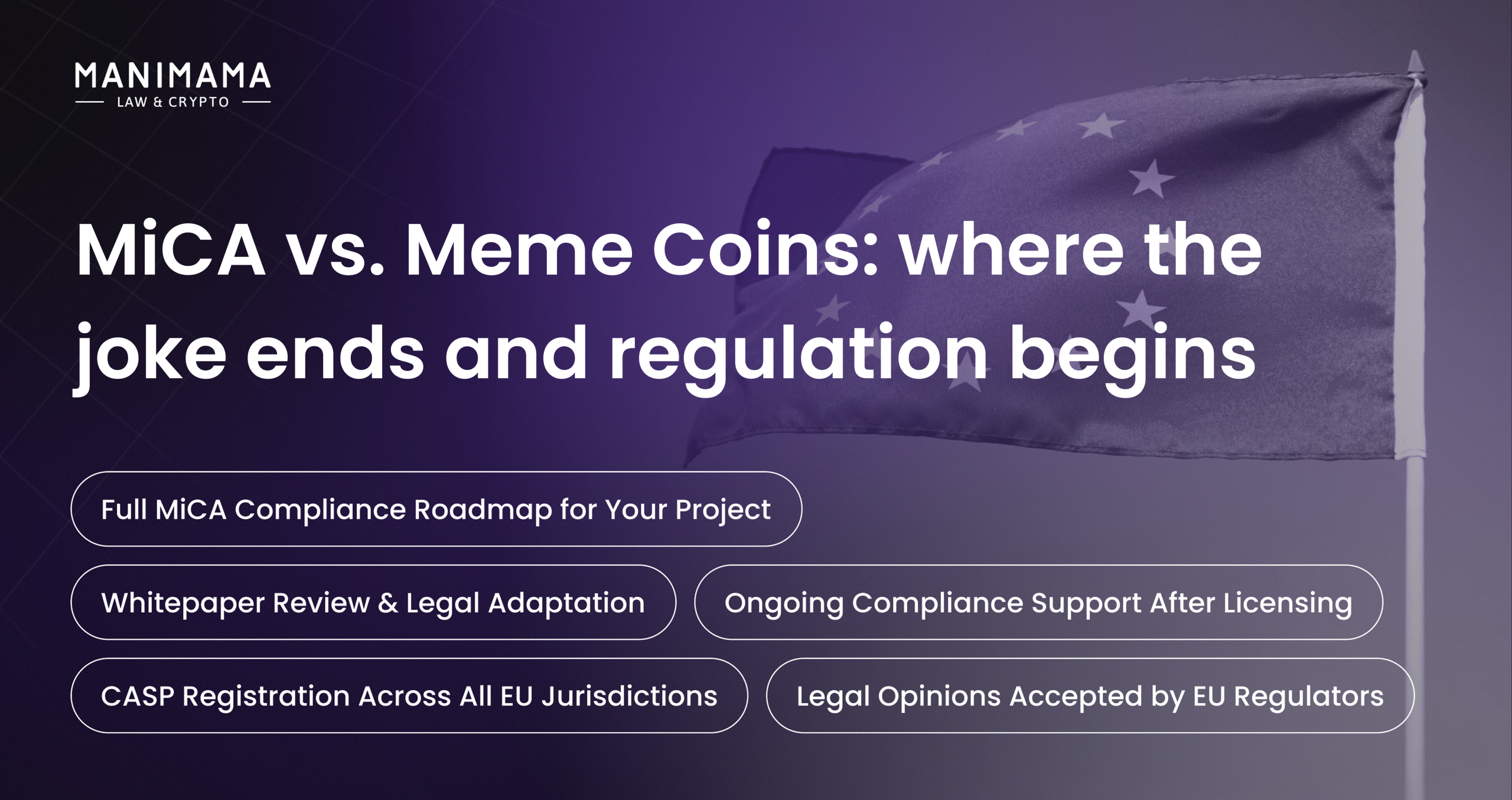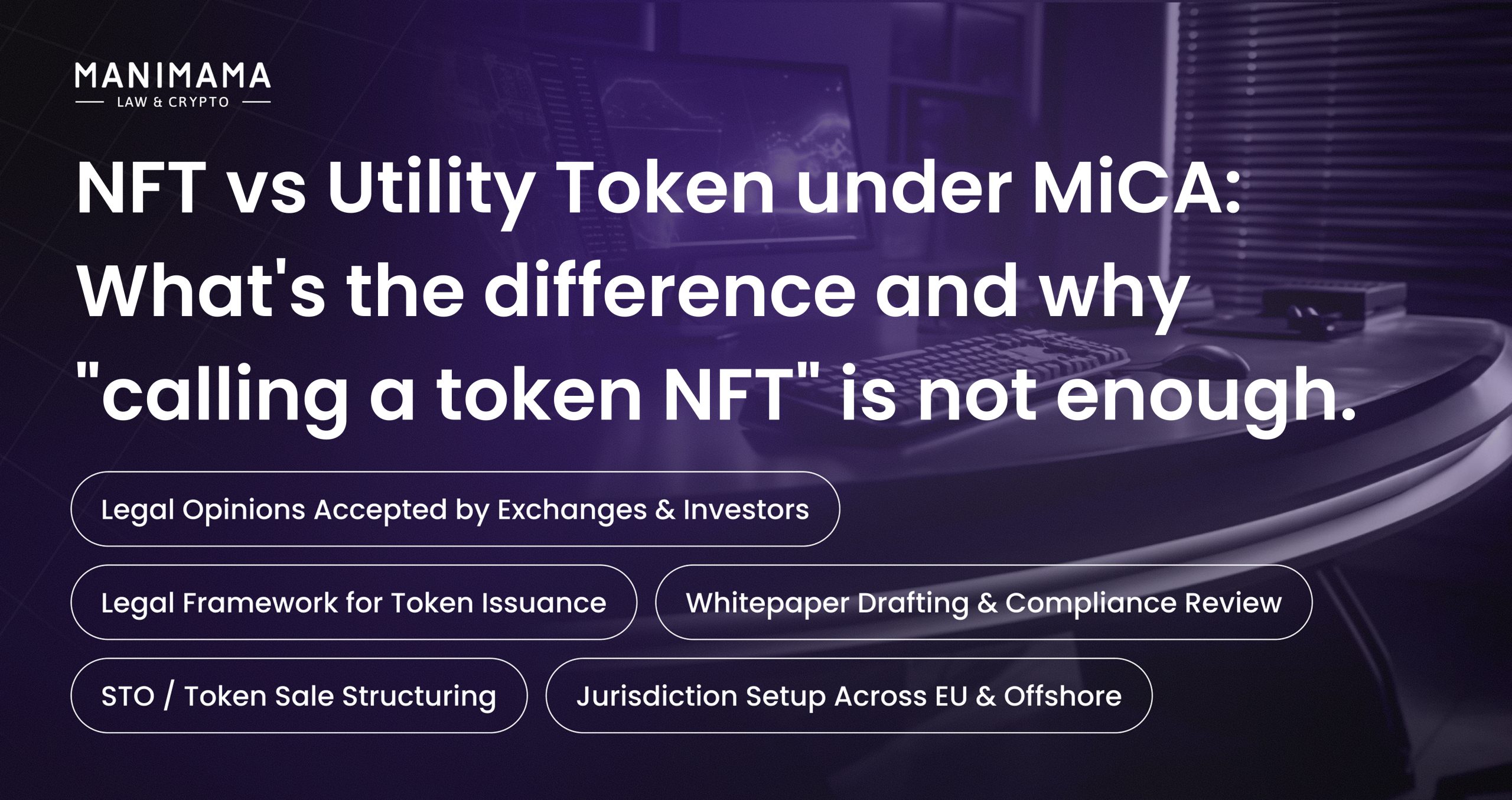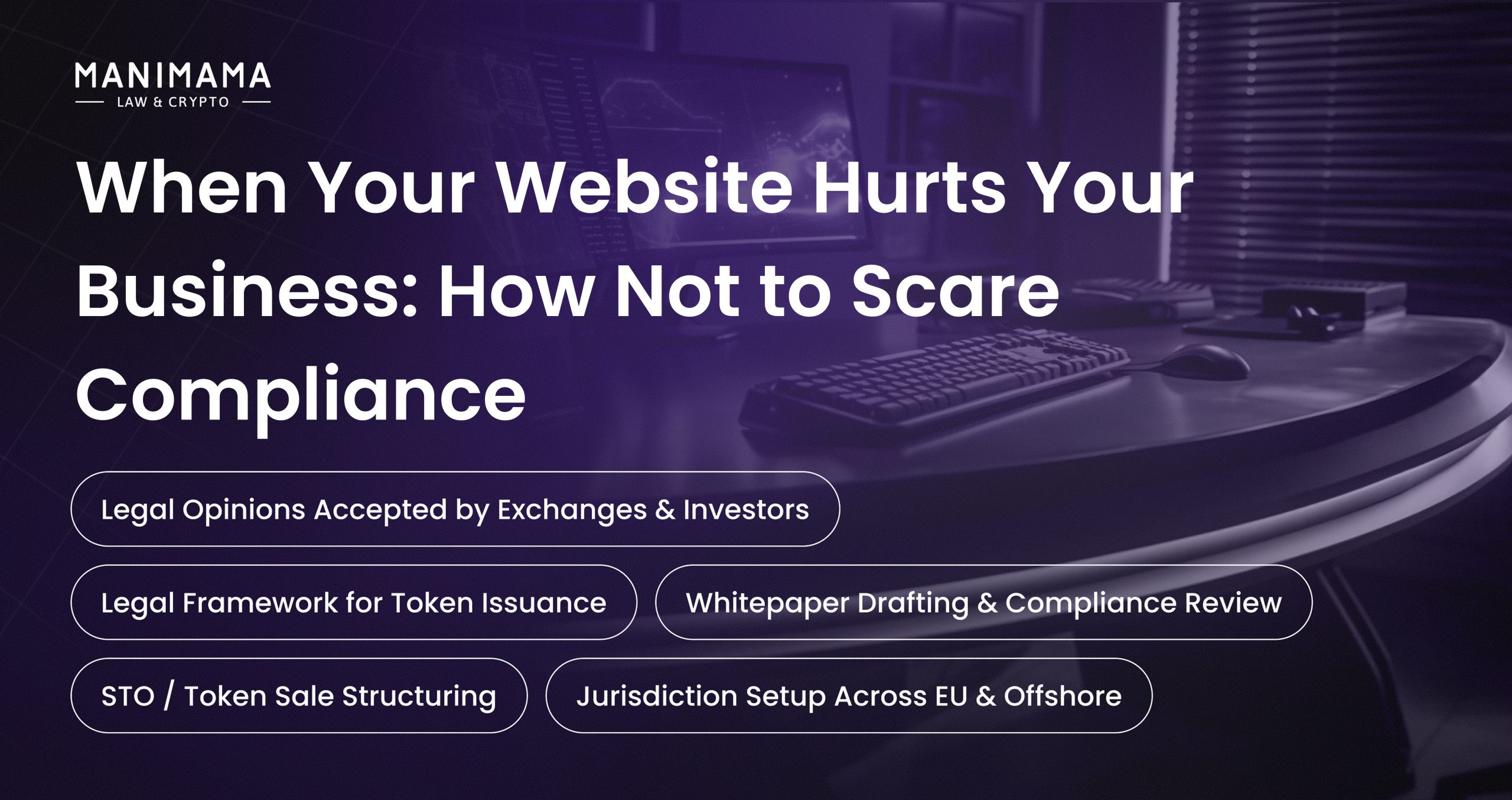Regulation (EU) 2023/1114 on Markets in Crypto-Assets (MiCA) has introduced harmonised, legally binding rules for all crypto-asset marketing across the EU. Any promotional communication – whether an ad, landing page, or social media post – must comply with MiCA’s strict transparency and consumer-protection standards, including fairness, clarity, and a company’s obligation not to mislead retail users. Regulators are already enforcing these rules beyond formal supervision. On April 16, 2025, Google confirmed that only MiCA-authorised Crypto Asset Service Providers (CASPs) will be permitted to run crypto-related ads within the EU.
This marks the first time that crypto marketing is treated as a regulated activity across all Member States and that global platforms align their ad policies directly with MiCA. As a result, EU companies face a new practical challenge: understanding exactly what MiCA allows and prohibits in marketing communications.
What MiCA requires in marketing communications
One of the most underestimated aspects of MiCA is its marketing regime. While the Regulation does not define “marketing communications”, ESMA’s Guidelines on marketing communications under the Regulation on cross-border distribution of funds make clear that the concept is intentionally broad: almost anything that promotes a crypto-asset or a crypto-asset service can qualify. Articles, blog posts, interviews, banner ads, landing pages, influencer content, Telegram announcements, YouTube explainers – all of these fall within scope if they can influence a user’s investment decision. Even third-party content becomes marketing communication once a company uses it for promotional purposes. The only exclusions are formal legal disclosures and non-promotional corporate updates.
Against this background, MiCA’s Article 7 imposes strict substantive requirements. Every marketing communication must be clearly identifiable as marketing, and the information it contains must be fair, transparent, and not misleading—a standard mirrored in Article 66, which requires CASPs to communicate honestly and professionally. Any form of selective hype, exaggerated claims, or omission of material risks now carries regulatory consequences across all EU Member States.
If a crypto-asset white paper is required, marketing must align with it and cannot be published before the white paper goes live. Communications must explicitly state that the white paper has been published and provide the issuer’s website, telephone number, and email address. MiCA also introduces a mandatory disclaimer that needs to appear prominently in every piece of marketing material:
“This crypto-asset marketing communication has not been reviewed or approved by any competent authority in any Member State of the European Union. The offeror of the crypto-asset is solely responsible for the content of this crypto-asset marketing communication.”
MiCA also requires transparency beyond the moment of publication. Marketing materials must be publicly accessible on the provider’s website before any offer or admission to trading begins, and they must remain available for as long as the public holds the crypto-asset. If new facts arise or earlier statements turn out to be inaccurate, communications must be promptly updated in the same manner as the white paper.
Supervisors in any EU country where the marketing is disseminated have the power to review compliance with Article 7, request information, and initiate enforcement. At the same time, home authorities are required to support cross-border oversight. In practice, this creates an EU-wide standard: once a communication breaches MiCA in one member state, it becomes a risk across the EU.
The result is a paradigm shift. Crypto advertising in Europe is no longer a creative free-for-all but a regulated activity governed by transparency, factual accuracy, and traceability—very similar to the regime long applied to traditional financial instruments, only with broader coverage and significantly less tolerance for ambiguity.
When marketing triggers a licence obligation: the reverse-solicitation trap
One of the most misunderstood and potentially costly aspects of MiCA is that marketing a crypto-asset service can, in itself, trigger a CASP licensing obligation. MiCA does not classify advertising as a regulated activity. But the moment a communication counts as solicitation to EU residents, the provider is no longer acting under “reverse solicitation” and must therefore be licensed in the EU.
Under MiCA, third-country providers may serve EU clients only if the client initiates contact on their own initiative. But ESMA’s Guidelines on reverse solicitation confirm that “solicitation” is interpreted broadly and in a technologically neutral way. In practice, almost any promotion directed (or appearing to be directed) at EU residents destroys the exemption.
According to ESMA, solicitation includes any activity that can reasonably influence an EU resident to engage with a crypto service: internet commercials, brochures, telephone calls, emails, banners, pop-ups and/or similar tools on websites and social media, face-to-face meetings, press releases, other forms of physical or electronic means, including websites, social media platforms, mobile applications, participations in road shows and trade fairs, invitations to events, affiliation campaigns, retargeting of advertising, invitations to fill in a response form or to follow a training course, messaging platforms.
ESMA also notes that sponsorships, including partnerships with EU sports teams, events, or influencers, generally constitute solicitation and preclude reliance on reverse solicitation.
Importantly, intent does not matter. Even content meant “for global audiences” may count as solicitation if EU users can access it and the material is promotional in nature.
Many non-EU firms try to rely on geo-blocking to preserve reverse solicitation. However, ESMA has explicitly warned that geo-blocking is not a safe harbour. EU regulators examine actual accessibility, not technical intention. Content that is reposted, scraped, shared, or mirrored by others can still be considered solicitation.
The legal threshold is far lower than many expect. Suppose EU residents can see ads, access promotional pages, read marketing posts, or watch sponsored content. In that case, the company is very likely soliciting clients under MiCA, even if it never specifically targeted them. At that point, the situation is no longer “reverse solicitation” but a cross-border provision of regulated crypto-asset services without a licence, triggering MiCA’s complete authorisation requirement.
So, if marketing reaches EU residents—intentionally or indirectly—the company is no longer in reverse-solicitation territory. The company operates in the EU and needs a CASP licence.
How social medias implement MiCA in ads
MiCA is no longer enforced only by regulators – global advertising platforms have quietly become the first line of compliance. In 2025, the world’s largest ad networks aligned their internal policies with MiCA, effectively implementing the rules requiring them to block crypto advertising from companies that do not hold a CASP licence. For EU-facing crypto businesses, this means marketing operations are now governed not only by national supervisors but also by the automated enforcement systems of Google, Meta, and TikTok.
Google was the first platform to reference MiCA explicitly. From April 23, 2025, only crypto companies licensed as CASPs (or authorised under ART/EMT regimes) can run ads in the EU. Google requires a valid CASP licence issued in any EU Member State, proof of compliance with additional national rules, and Google’s own certification confirming MiCA compliance. Policy violations result in warnings and eventual account suspension—a radical shift from the unregulated crypto ad landscape of previous years.
Meta applies a similarly restrictive approach. Under its Advertising Policies, most crypto-related promotions require prior written approval, and advertisers must demonstrate that they hold any licences or registrations required in the jurisdiction where they operate. Meta may request regulatory documentation as part of its verification process and can restrict ads referencing tokens, exchanges, or wallets if compliance cannot be demonstrated. The platform relies heavily on pre-approval review, automated content analysis, and machine-learning systems designed to detect non-eligible or non-licensed operators.
TikTok maintains one of the strictest policies in the industry. Before MiCA, TikTok already prohibited crypto and financial promotions. Post-MiCA, TikTok’s policy states that ads for cryptocurrency exchange services and custodial wallets—including tokens, wallets, or investment-related tools—may only be allowed if local or regional authorities license the advertiser and the advertiser works with a TikTok Sales Representative to obtain permission.
Conclusions
The new reality is simple: under MiCA, crypto marketing in Europe requires the same level of discipline as product issuance, client onboarding, or custody operations. Companies that adapt their marketing and communication frameworks early – aligning internal review processes, adjusting their claims, and ensuring consistency with their white papers and licences – will be the ones able to operate sustainably in the EU’s newly regulated market. The era of unregulated crypto advertising in Europe is over. The era of compliant, transparent, and accountable communication has begun.
At Manimama Law Firm
At Manimama Law Firm, we help businesses navigate this new reality effectively. We prepare documentation, manage application processes, and develop long-term crypto compliance strategies.
Our Contacts
If you want to become our client or partner, feel free to contact us at support@manimama.eu.
Or use our telegram @ManimamaBot and we will respond to your inquiry.
We also invite you to visit our website: https://manimama.eu/.
Join our Telegram to receive news in a convenient way: Manimama Legal Channel.
The content of this article is intended to provide a general guide to the subject matter, not to be considered as a legal consultation.










